Ever since its inception in 2012, NESFAS has played a major role in the preservation of indigenous food cultures and traditions in the North East of India, especially in Meghalaya. Over these years, NESFAS has worked relentlessly to fulfill its mission of highlighting the connection between sourcing tasty, healthy, local foods and the responsibility one has towards the protection and preservation of the agrobiodiversity that produces these foods.
This has, in turn, helped empower traditional farmers, highlighted the role of women as custodians of our food culture, helped protect agrobiodiversity, and also establish a network of well-informed and knowledgeable farmers contributing hugely towards the mission.
Today, in conjunction with the International Day of Biological Diversity, we celebrate some of the major activities NESFAS has undertaken towards preserving and enriching the rich Biological Diversity in the North East.
Nature-based learning through Agrobiodiversity (ABD) walks and School Gardens
The knowledge indigenous people possess of the forest and its many resources have been passed down in practice through generations. Worryingly, however, our youths are getting more detached than ever from the traditional practice of foraging and collecting plants from the forests. To avert this, NESFAS has been working closely with local knowledge holders, organising ABD walks in various communities.

In these walks, local knowledge holders lead groups of students/youths and introduce them to the various edible and medicinal plants. Their knowledge on the seasonality and benefits of the plants and the herbs are also shared with the group who document and catalogue them. In these ABD walks, children are made acquainted with the crop diversity found in different production systems, encouraged to consume clean and nutritious local food, and also taught about farming practices. Between 2018 till date, over 2299 youths have participated in 81 ABD walks held under the Nutritional Campaign.

NESFAS has also helped set up 67 School Gardens in many communities recognising the pivotal role children (6-15-year-olds) play in safeguarding Indigenous Food Systems (IFS). Even amid the onslaught of the pandemic, under the guidance of NESFAS, children (in rural areas) have continued learning about Indigenous Food System (IFS) practically through ABD walks and school gardening. The ABD walks and the School Gardens have been colossal in helping the younger generation gain a better insight into the intricate connection of our traditional food culture with the forests and traditional farming system.
Promoting wild edibles as an integral part of diet leading to nurturing/protection of forests
While the most important goal of ABD walks is to pass the indigenous knowledge of foraging to the younger generations, promoting the consumption of the foraged wild edibles is also another vital aim. Thus, an integral aspect of the ABD walks in rural areas often takes place after the walk. Here, the local custodian cooks demonstrate how to incorporate the foraged plants, fruits, and other vegetables as ingredients to prepare tasty and healthy traditional dishes. Most of these herbs that are found in the village premises have been known to be able to meet the minimum dietary diversity required for a healthy meal.
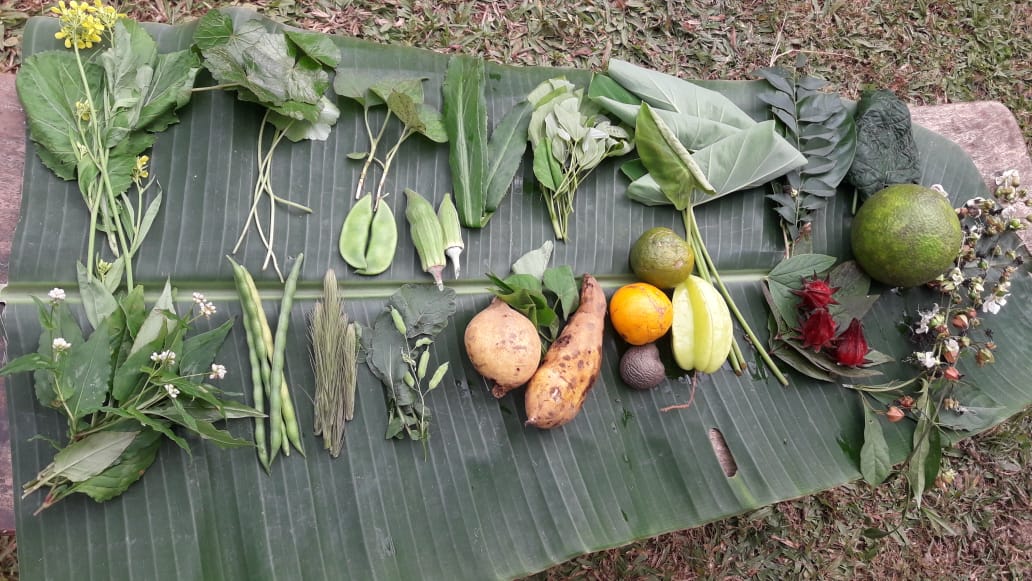
The newfound knowledge on the benefits, seasonality, and conservation of these wild edibles directly leads to the community members acting to sustain these ingredients by nurturing the forests that provide the same. As such, many communities where NESFAS has helped organise ABD walks have stepped up in preserving and protecting their Agrobiodiversity.
Sustainable Livelihoods through Mother Earth Cafes and Eri weaving
The well-being and prosperity of a community are directly related to the livelihoods of the individuals in that community. NESFAS has worked with individuals and communities to help set up sustainable livelihoods. Two among such programs that have played a significant role are the Mei-Ramew (Mother Earth) Cafes and Eri Weaving training.
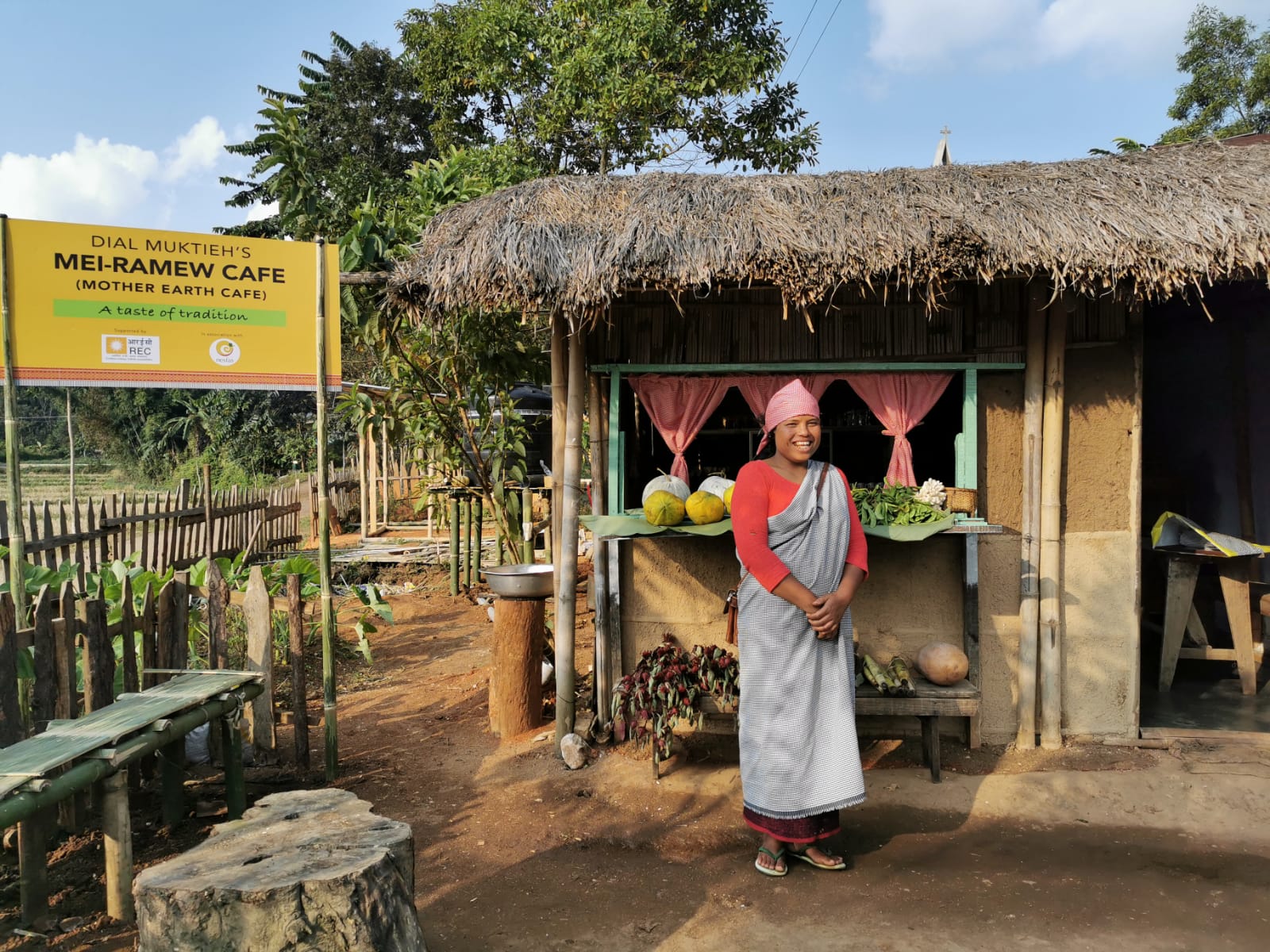
Mei-Ramew Cafes are indigenous cafes that serve local foods and encourage innovation in local cuisines with maximum use of local ingredients. These cafes, apart from re-establishing traditional, cultural, and sustainable food practices, have helped improve the rural economy as well as the livelihoods of the people involved. NESFAS has helped set up 7 Mei-Ramew Cafes in six communities with all the seven cafes still functioning and acting as a catalyst for sustainable livelihoods.
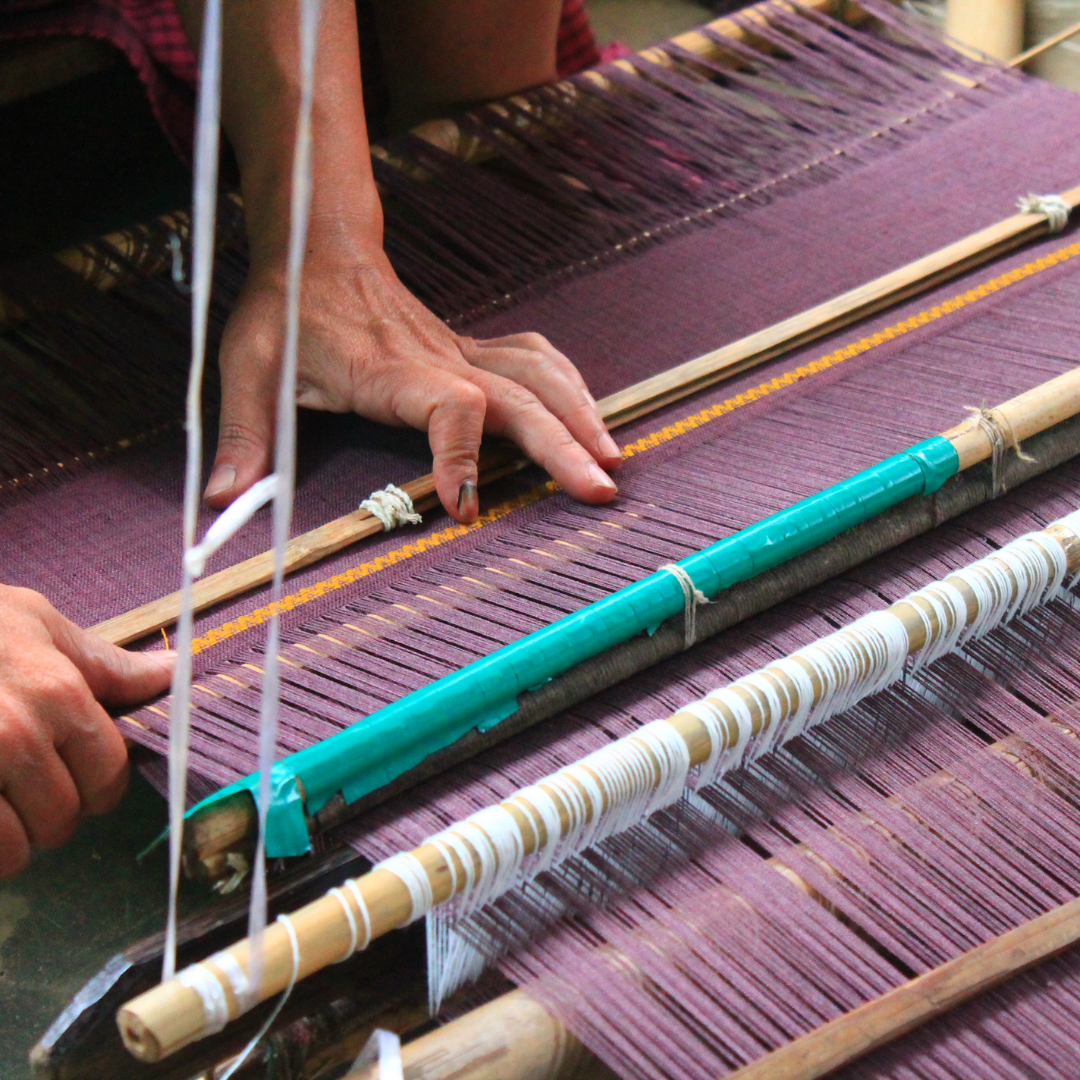
Erstwhile, NESFAS also works steadfastly with local artisans from Khweng and Madanrtiang (Ri-Bhoi District) to preserve the age-old tradition of Eri weaving. Various training programs have been organised under NESFAS where trainees are taught the process of eri weaving from start to finish; i.e. rearing the silkworms, spinning of the Eri silk, dying, and weaving of the end products. The marketability and the value of the world’s most sustainable fabric (eri silk) have brought dignity among the locals to learn the craft while also providing them a viable means to earn their livelihood. An estimate Rs. 2, 35,016 has been generated through direct sales of the weaves from 2018 till December 2020 by 44 local artisans.
Pollinators’ Network
The role pollinators (bees and other insects) play in maintaining and nurturing biodiversity on earth cannot be emphasised more. Research indicates an estimated three-fourths of the world’s flowering plants and 35% of the world’s food crops depend on pollinators to yield crops. However, with factors ranging from agricultural chemical use to climate change contributing largely to the dwindling numbers of pollinators, it has become increasingly urgent to protect our allies in our fight against hunger and the preservation of our biodiversity.
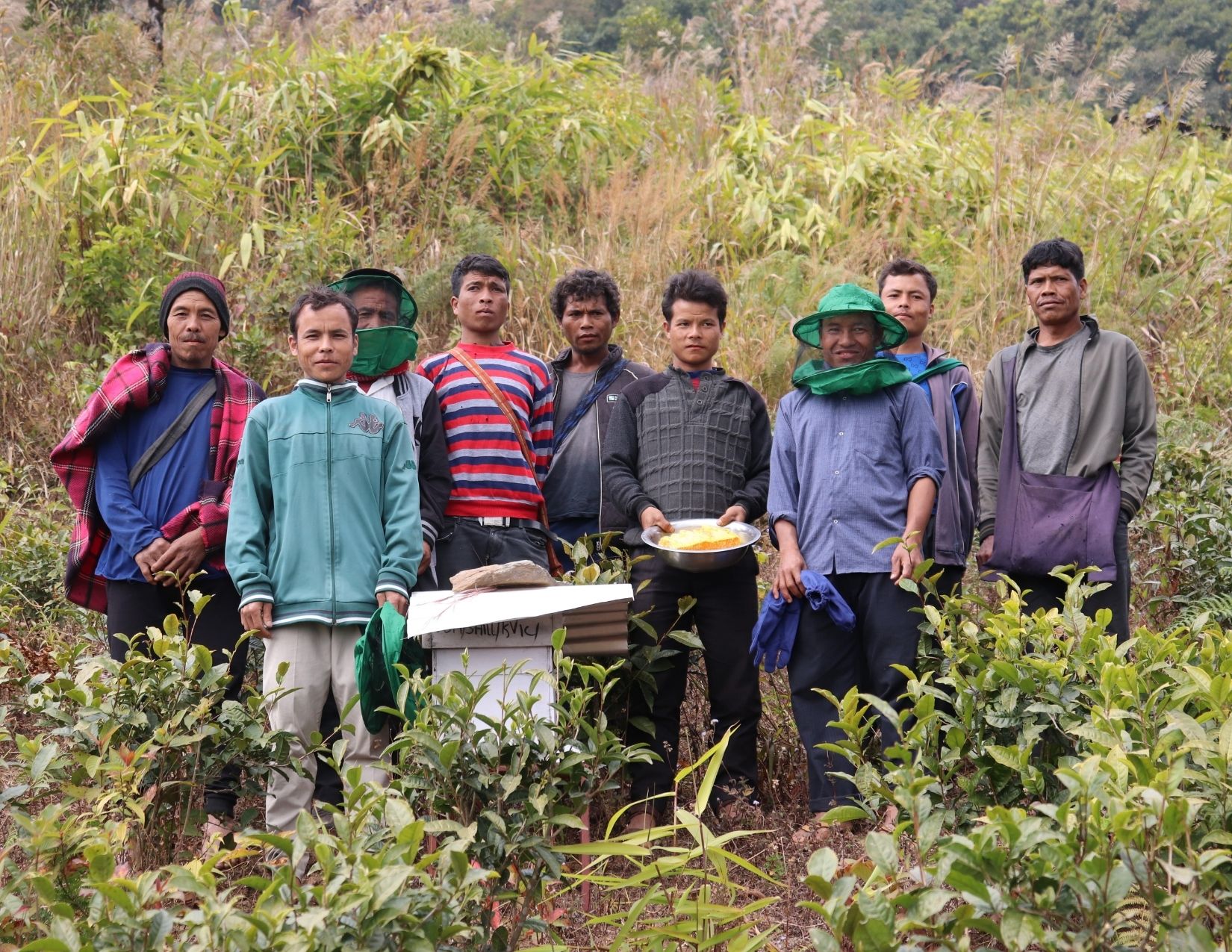
NSFAS’ pollinators’ networks were set up to strengthen the network of indigenous beekeepers from the North East and to aid the population of pollinators. Amidst the ongoing pandemic, NESFAS supported as many as 2226 households in Meghalaya to grow their own kitchen gardens to provide pollinators with a steady source of nectar.
Under the aegis of NESFAS, five schools have also incorporated Pollinators’ Study as a subject and the Synroplang Beekeepers Group in Mawnpynthymmai community (East Khasi Hills) have begun introducing modern tools and methods of production for a higher commercial yield.
ALC for community-led nature-based action
Agroecology Learning Circle (ALC) is a concept promoted by NESFAS. In its essence, the ALC group is an autonomous space for farmer to farmer reflection, action, analysis, and innovation for revitalising and sustaining Indigenous food systems for improving nutrition-sensitive production, consumption, and livelihood opportunities based on the principles of agroecology.
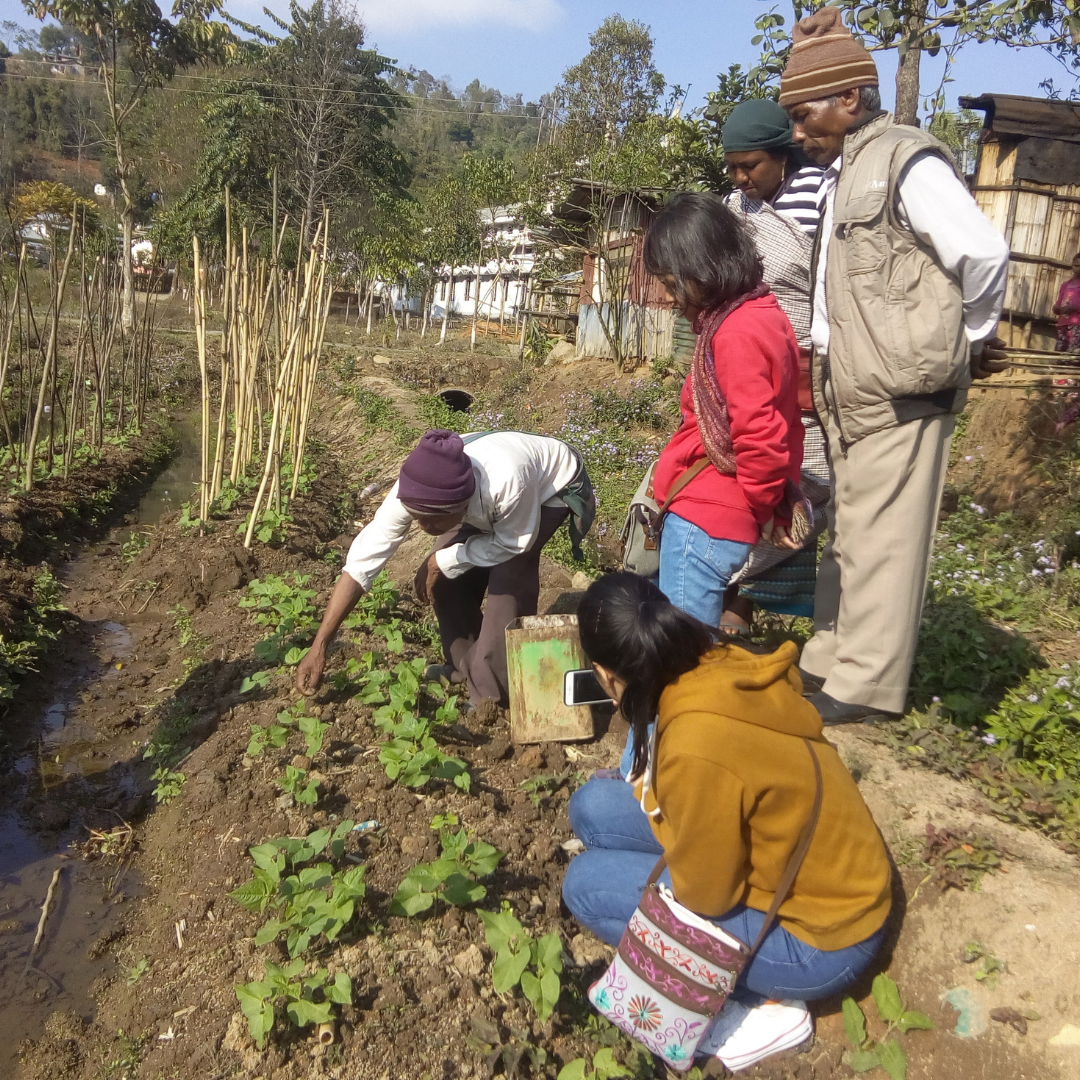
The various ALC groups often have exchange visits where they share the learning from their experiments and practices. At present, there are 29 active ALCs with 382 farmers engaged in these ALC groups under the “No One Shall be Left Behind Initiative: Biodiversity for Food, Nutrition, and Energy Security, Meghalaya and Nagaland.” that has been implemented since 2018 supported by the Rural Electrification Corporation (REC). One community, viz. Madanrtiang, has also taken up the baton to defend their food system through the ALC groups. Many of the other ALCs have also initiated community-led nature-based actions such as setting up community seed banks, seed saving, and seed exchange, developing biopesticides, setting up composting units for farms, traditional pest management, and much more.
Agrobiodiversity documentation
One of the greatest threats in the fight to preserve traditional food cultures is the negligence in documenting agrobiodiversity. The long-drawn oral tradition of passing on knowledge from one generation to the next has its fallacy in continuity. Add to that, the advent of the Green Revolution in the 1970s led to many farmers abandoning multiple local variety crops for a few high yielding varieties leading to a major shrink in plant genetic diversity. It has thus become pertinent for us to document our agrobiodiversity so that the local knowledge of the forest which has taken thousands of years to build will not dissipate overnight.
One of the main goals under the “No One Shall be Left Behind Initiative” project which has been in place since 2018 is the identification of micro-nutrient and climate-resilient species for increasing consumption and production. The Team at NESFAS along with ethnobotanists, has designed a participatory methodology for documentation of agrobiodiversity from 32 project villages in Meghalaya and Nagaland.
The documentation from this particular exercise is set to be compiled in the first volume of the book entitled “Agrobiodiversity Book of Meghalaya and Nagaland” which is nearing its publication.
As rural communities move forward with the fast-paced world, NESFAS’ role has been one of celebrating, promoting, and documenting the traditional food cultures of these communities. Much has been accomplished in preserving this legacy and NESFAS has also contributed hugely towards the protection and the sustainability of biodiversity through their partner communities.

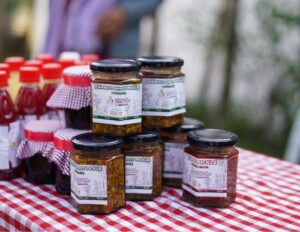
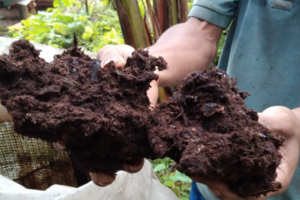
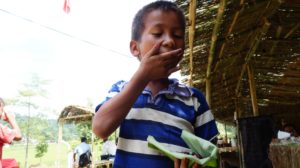
The Northeastern part of India has huge potential in traditional herbs and wild edible fruits market and we all know that its not something the govt. Would invest in for the time being but is something we all can embank upon. Needless to say NESFAS is doing a great work and am happy to see some many young minds divulging in varied fields.